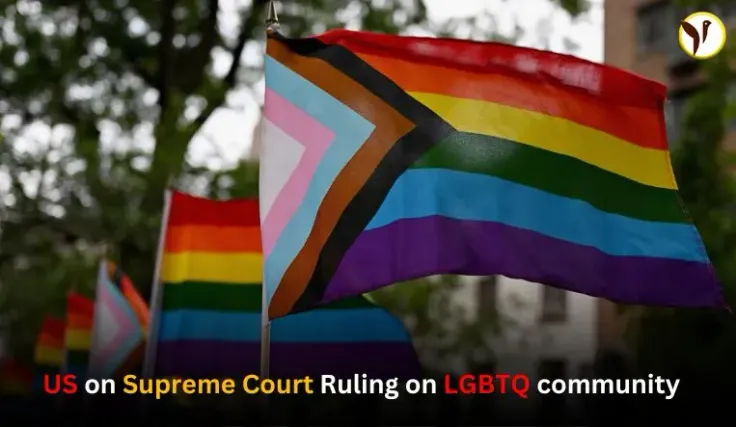On Tuesday, The Supreme Court agreed with Prime Minister Narendra Modi's administration that the legislature is the appropriate body to make decisions on the matter when it declined to legalize same-sex marriage.
The U.S. State Department stated on Thursday that following the Supreme Court of India's decision to reject same-sex marriage legalization, the country was "closely monitoring follow-up steps" from the Indian government and that the United States encouraged it to work toward providing equal legal protection to same-sex couples.
Five years after the court overturned a ban on gay sex dating back to colonial times, the sizable LGBTQ community in the most populous nation in the world was deeply disappointed by the unanimous ruling by a five-judge bench.
In opposition to court petitions on the subject, the nationalist Bharatiya Janata Party (BJP) administration of Prime Minister Modi stated that same-sex marriage was not "comparable with the Indian family unit concept of a husband, a wife, and children."
Also read, Indian Rupee Gains Momentum After RBI's Strong Intervention
"We will continue to voice our support for marriage equality and protections for LGBTQI+ persons against discrimination and encourage the Indian government to take the necessary steps to offer equal legal protection to same-sex couples," a representative for the State Department stated.
D.Y. Chandrachud, the Chief Justice of India, stated on Tuesday that the Supreme Court "cannot make law." It is limited to its interpretation and use.
Asia generally lags behind the West in legalizing same-sex marriage; this is a continent where traditional ideas still hold sway over society in many countries.
According to the US State Department, it regularly discusses human rights issues, such as LGBT rights, with the Indian government.
Also, Read, Canada Evacuates Diplomats from India Amid Controversy







